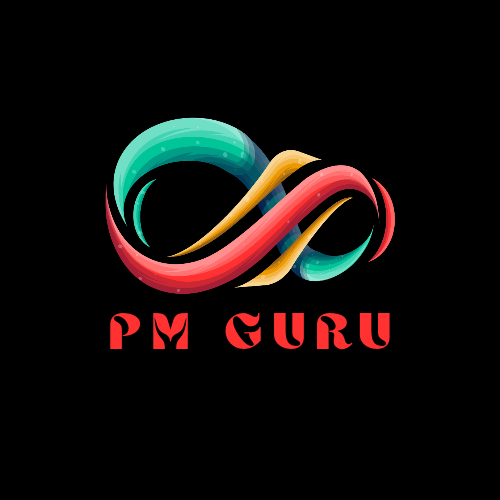Mental Health and Gen Z: Navigating Wellness Trends, Digital Detox, and Sleepmaxxing
The Importance of Mental Health in Gen Z
In recent years, mental health has emerged as a paramount issue for Generation Z, the cohort born approximately from the mid-1990s to the early 2010s. This generation is facing unique stressors that contribute to a rising prevalence of mental health challenges, making the examination of their mental wellness crucial. One of the significant factors affecting Gen Z’s mental health is the ubiquitous presence of social media. Platforms such as Instagram and TikTok create environments where comparisons can lead to anxiety and depression, undermining self-esteem. This constant connection, while fostering community, also imposes relentless pressures on young individuals to conform to unrealistic standards.
Furthermore, economic uncertainties present another layer of complexity for this generation. With the impacts of the COVID-19 pandemic lingering, many members of Gen Z grapple with job insecurity, student debt, and rising living costs. Such economic challenges exacerbate mental health issues, leading to increased stress and anxiety about the future. Global crises, including climate change and social justice movements, contribute to feelings of helplessness and concern for the world, further affecting their mental wellness.
The prevalence of mental health issues among Gen Z is alarming, with numerous studies indicating higher rates of depression and anxiety compared to previous generations. As a response, this generation is actively engaging in discussions surrounding mental health, seeking therapy, and promoting self-care practices more openly than ever before. The normalization of mental health conversations has begun to destigmatize these challenges, encouraging young individuals to prioritize their well-being. This trend shapes their approach to wellness, leading to a greater emphasis on holistic health practices, including mindfulness, therapy, and community support. The increased dialogue about mental health not only empowers Gen Z but also highlights the importance of addressing these issues both individually and collectively.
Trends in Wellness: Offline Communities and Support Networks
In recent years, there has been a significant shift among Generation Z toward prioritizing mental health and wellness through offline communities and support networks. As young individuals navigate a world dominated by technology and social media, they are increasingly recognizing the value of in-person interactions. These face-to-face engagements offer essential emotional support and the opportunity to share experiences that are integral to fostering social connections.
One observable trend is the growing participation in community mental health events, which have emerged as vital platforms for Gen Z. These gatherings encourage young individuals to come together, discuss their mental health challenges, and engage in supportive dialogues. Such initiatives not only provide immediate emotional relief but also cultivate a sense of belonging by connecting participants with like-minded peers who understand their struggles.
Peer-led groups have also gained traction, showcasing the power of shared experiences in mental wellness. These groups often consist of individuals who have faced similar mental health issues, enabling a unique understanding and empathy among members. In a peer-led environment, participants feel safe to express their feelings without the fear of judgment, thereby enhancing their overall mental well-being.
Additionally, the importance of offline communities is underscored by their ability to combat feelings of isolation and anxiety, which are prevalent among Gen Z. In an age where digital interactions can often feel superficial, the tangible connections formed through community involvement serve to reinforce emotional resilience. Engaging in group activities, whether through workshops, retreats, or support groups, promotes authenticity and encourages open discussions about mental health.
As Generation Z continues to prioritize mental wellness, the trend toward offline community engagement highlights the crucial role of human interaction in fostering a supportive environment. Such initiatives not only bolster personal well-being but also strengthen the overall fabric of communities, ensuring that mental health remains a shared priority.
The Digital Detox Movement: Balancing Screen Time and Mental Well-being
The digital detox movement has emerged as a significant trend among Gen Z, primarily as a response to the growing concerns regarding mental health and the impact of excessive screen time. With technology intricately woven into daily life, many young individuals report experiencing symptoms of anxiety, depression, and cognitive overload, which are often exacerbated by prolonged use of smartphones and social media platforms. Consequently, Gen Z is actively seeking effective strategies to cultivate a healthier relationship with technology.
One of the core tenets of the digital detox movement involves instituting regular breaks from screens. Initiatives such as social media hiatuses, whereby individuals willingly disengage from their online presence for designated periods, have gained favor. These breaks allow Gen Z to reconnect with the physical world, engage in face-to-face interactions, and rediscover hobbies, ultimately augmenting their mental well-being. By intentionally limiting digital engagement, young people can reduce feelings of isolation and enhance their overall psychological health.
Additionally, numerous applications have been developed to assist users in tracking and managing their screen time. These tools provide insights into usage patterns, encouraging mindful consumption of digital content. By promoting awareness around the amount of time spent on devices, Gen Z can take proactive steps to regulate their digital habits. Furthermore, practices such as setting specific goals for screen time or engaging in digital-free weekends contribute to a healthier lifestyle and improved mental clarity.
Mindful consumption is another significant aspect of the digital detox approach. This involves being selective about the content consumed online, opting for uplifting and informative material rather than engagement with negative or misleading information. Consequently, by embracing these strategies, Gen Z is making strides towards fostering a balanced coexistence between technology and mental wellness.
Sleepmaxxing: Prioritizing Rest for Mental Health
In recent years, the concept of “sleepmaxxing” has gained traction, particularly among Generation Z, highlighting the growing importance of sleep quality and duration in relation to mental health. This trend underscores the assertion that adequate sleep is a fundamental pillar of well-being, directly impacting mental resilience and emotional stability. Research has established a strong link between sleep and mental health, with poor sleep patterns frequently associated with increased levels of anxiety and depression. By prioritizing sleep, Gen Z is taking significant steps towards maintaining their overall mental wellness.
One of the primary factors contributing to sleepmaxxing is the recognition of sleep hygiene practices. These practices include establishing a consistent sleep schedule, creating a calming bedtime routine, and optimizing the sleep environment—reducing light and noise levels, for instance. Such measures have been found to foster deeper and more restorative sleep, thereby minimizing the risks of mental health issues connected with sleep deprivation.
Technology also plays a notable role in the sleepmaxxing trend. Many individuals in Gen Z utilize sleep tracking applications and wearable devices that monitor metrics such as sleep duration and quality. These tools provide valuable insights that can help users identify patterns and make informed adjustments to their habits. Furthermore, individuals are exploring a variety of alternative methods to support their quest for better sleep. Techniques such as mindfulness meditation, yoga, and breathing exercises are becoming more popular as they contribute to relaxation and improved sleep outcomes. Additionally, herbal remedies, such as chamomile and valerian root, are being embraced as natural aids to enhance sleep quality.
As sleepmaxxing continues to evolve, it serves as a reminder of the vital connection between sufficient rest and mental health. By prioritizing quality sleep, Gen Z is not only enhancing their daily functioning but also fostering a proactive approach to mental wellness.




